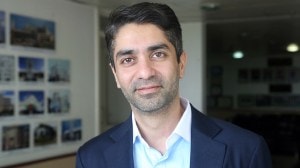Courting emergency
If ever a military ruler was needed by Pakistan, it is now. Circumstances have forced moderation on the army

ARE they going to impose emergency rule or not? This was the question that rattled everyone in Pakistan for much of Wednesday night and Thursday morning. Then the people learnt that Condoleezza Rice had her 17-minute phone chat with President Musharraf at two in the morning, Islamabad time, and the clouds of ambiguity began to subside. While the world knows what the Americans had to say to Musharraf, only the Americans know what the general8217;s response was. Given his equation with Washington, he probably sold the emergency and closed a deal. But wait, it8217;s not the right timing perhaps, just a few days short of the nation8217;s 60th birthday; emergency rule is now likely to be imposed a few days after Independence Day.
The other question being asked across Pakistan is: what has this government not done without imposing emergency that it now intends to do after declaring it? The post-1999 coup d8217;etat years have seen Musharraf8217;s tailor-made administration cross all boundaries 8212; moral, political and constitutional. Elected leaders were deposed, tried, convicted and then arbitrarily evicted. Shahbaz Sharif faced eviction twice. Makhdoom Javed Hashmi of Sharif8217;s Muslim League, who was released on bail by the Supreme Court last week, was also tried, convicted and jailed for high treason. This, after the apex court itself won its battle against the government8217;s arm-twisting, and ruled that the president8217;s suspension of the chief justice of Pakistan and the judicial reference filed against the judge were not maintainable.
The much-flouted independence 8220;given8221; to the media by the regime also came under attack when TV channels were attacked and taken off the air as punishment for broadcasting live the suspended judge8217;s road shows and the support he was given by the public at large. BBC Pakistan8217;s hourly news bulletins on FM radio stations faced similar closures; when the station in question started broadcasting its own news bulletins instead, it was shut down time and again. The Punjab and Sindh governments too have been guilty of directing cable operators to suspend transmission of certain channels arbitrarily, until the channel owners buckled under pressure and fell in line. The May 12 government-orchestrated carnage in Karachi remains fresh in memory.
Let8217;s not forget that before March 9 this year when the chief justice was suspended, subsequently imprisoned in his house and then manhandled, courts too had acquiesced and kept mum over the government8217;s highhanded tactics. Since the decision on the chief justice8217;s restoration on July 20, the apex court has, however, hit back by showing unprecedented inflexibility to 8216;accommodate8217; the government on any given issue. The reasons cited by government sources for the imposition of emergency rule were the Supreme Court8217;s refusal to have a 8220;working relationship8221; with the government 8212; the very suggestion being an oxymoron and equally telling of the 8220;real8221; democracy fathered by Musharraf.
Thus, the power-sharing deal between Benazir Bhutto and the general may be dead, under tremendous public pressure, before it even began to breathe. But Musharraf must seek re-election as a serving general, or so have the gods decreed; whether that requires suspending basic rights and civic liberties or resorting to realpolitiking is beside the point. Nearly 60 and still crawling is the state that best describes the infantile democracy in Pakistan.
That said, the armed forces have a bigger job to do which they cannot leave half-finished. This pertains to the cleaning up of the jihadi culture plaguing Pakistan like never before. For a country accustomed to long bouts of military rule and self-serving politicians coming to power in between, and that too only with the approval or active backing of the army, it is unnerving to see the urgency being attached by certain quarters to immediate restoration of democracy at this time. Ideally, the military should never have wielded political power, but that ideal has remained elusive in the last six decades of Pakistan8217;s troubled politics.
At this point in time, internal and external factors have combined to moderate the ruling generals8217; behaviour: they have been forced to rid the country of the jihadi elements and shun their own old, hardened attitudes towards India. The American pressure for coming down hard on militants hiding along the Afghan border or to face an invasion to get the needful accomplished is no secret. Neither is the flexibility General Musharraf has time and again showed to bury the hatchet with India. These are two jobs that the army alone should be required to do rather than being offered a cover of a civilian, democratic government behind which it can conveniently hide and go back to forestalling either of the tasks being seen through to a logical conclusion.
In this context, Bhutto8217;s eagerness to bail out the embattled general and Sharif8217;s vendetta-laden agenda against him, with the sole objective of somehow coming back in power, do not serve Pakistan8217;s longer-term interests. If ever a military ruler was needed by the country, it is now. Given the circumstances, and despite reservations as to their own convictions, the generals have little choice but to cleanse the country of the extremists and mend fences with India in a meaningful, lasting way.
If the Supreme Court lets the military leader have his way just this once, it may serve the cause of Pakistan better than the court8217;s ready acceptance in the past of the infamous 8220;doctrine of necessity8221; every time a dictator sought legitimacy. Illegal dismissal of the Constituent Assembly of Pakistan by Governor-General Ghulam Mohammed was upheld by the apex court in 1954 under the doctrine. Subsequently, usurpation of power by military chiefs, citing national interest, was indemnified in 1958, 1977, and lastly in 2000, when the court gave Musharraf not only the right to put the constitution in abeyance but also to amend it to suit the exigencies of governance under a military umbrella.
Musharraf8217;s tragedy this time round may be that his case now rests at the footstep of an institution whose head he wished to tame but failed.
The writer is an editor with Dawn, Karachi
- 01
- 02
- 03
- 04
- 05































